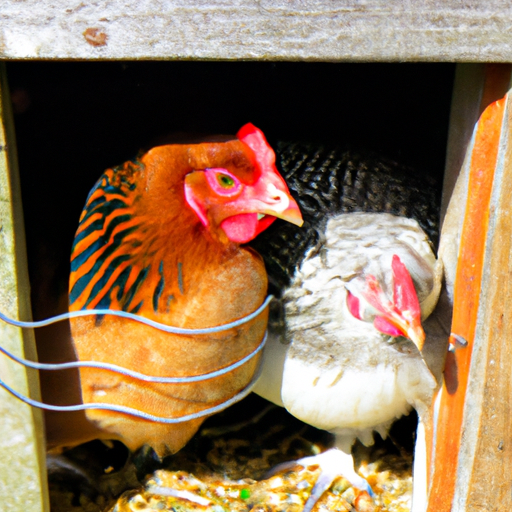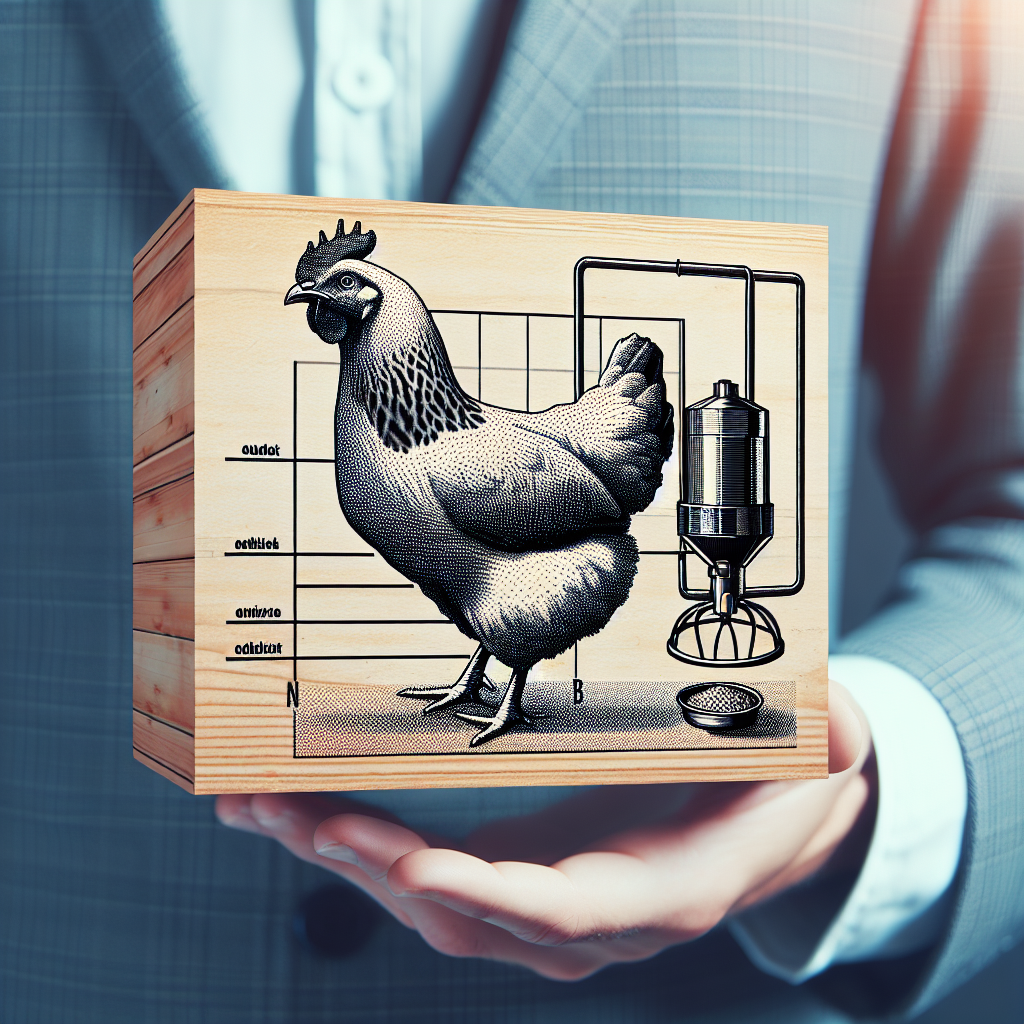When it comes to keeping backyard chickens, the ideal flock size is a common question that many new poultry enthusiasts ponder on. Should you start with just a couple of hens or would a larger group be more beneficial? In this article, we will explore the factors to consider when determining the best flock size for your backyard setup. Whether you’re a beginner or a seasoned chicken keeper, finding the perfect balance between flock size and your needs is essential for a happy and successful chicken keeping experience. So, let’s dive into the world of backyard chicken keeping and discover the ideal flock size that suits you and your feathered friends.
Benefits of Backyard Chickens
Fresh eggs
Having backyard chickens means you have a steady supply of fresh eggs right at your fingertips. There is nothing quite like collecting your own eggs each morning and knowing exactly where they came from. Not only are they delicious, but they are also nutritious, containing high levels of protein and essential vitamins and minerals. Plus, with your own flock of chickens, you can ensure that the eggs you consume are produced without any harmful chemicals or antibiotics.
Natural pest control
One of the great benefits of keeping backyard chickens is their ability to act as natural pest control. Chickens love to forage and eat insects, slugs, and other pests that can damage your garden. Instead of relying on pesticides and harmful chemicals, you can let your flock do the work for you. They will happily hunt and peck their way through your garden, keeping pests at bay and helping to maintain a healthy ecosystem.
Fertilizer production
Backyard chickens are not only great for producing fresh eggs and controlling pests, but they also play a vital role in fertilizer production. Their manure is a rich source of nutrients, making it an excellent natural fertilizer for your garden. By allowing your chickens to free-range in certain areas of your yard, you can create a self-sustaining cycle where they provide you with fresh eggs and pest control while simultaneously enriching the soil for your plants. It’s a win-win situation for both you and your garden.
Considerations for Flock Size
Available space
Before deciding on the size of your backyard chicken flock, you need to consider the amount of available space you have. Chickens require a certain amount of space to live comfortably and thrive. They need to be able to move around freely, stretch their wings, and engage in natural behaviors like scratching and dust bathing. The size of your yard or coop will determine how many chickens you can realistically accommodate.
Local regulations and restrictions
It’s important to familiarize yourself with the local regulations and restrictions regarding backyard chicken keeping. Some areas have specific rules and guidelines in place, such as limits on the number of chickens allowed and requirements for coop size and placement. By understanding and adhering to these regulations, you can ensure a harmonious relationship with your neighbors and avoid any potential legal issues.
Personal capacity and commitment
Another crucial consideration for flock size is your personal capacity and commitment level. Keeping backyard chickens requires time, effort, and responsibility. Some flock owners may prefer a smaller number of chickens to better manage their care and provide individual attention. On the other hand, those with more time and resources may feel capable of handling a larger flock. Assess your own abilities and make an informed decision based on how much time and energy you can dedicate to your feathered friends.
Factors to Consider for Optimal Flock Size
Egg consumption
One of the main factors to consider when determining the optimal flock size is your egg consumption. How many eggs do you and your family consume on a regular basis? If you have a small household and only eat a few eggs per week, a smaller flock may be more than enough to meet your needs. However, if you have a larger family or enjoy cooking and baking with eggs frequently, a larger flock might be necessary to ensure an adequate supply.
Feeding and cleaning requirements
Chickens require regular feeding and cleaning, and the size of your flock will influence the amount of time and effort required for these tasks. A smaller flock means less feed consumption and a more manageable amount of waste to clean up. Conversely, a larger flock will require more feed and generate a higher volume of waste. Consider how much time you can dedicate to these chores and choose a flock size that aligns with your capabilities.
Companionship and socialization for chickens
Chickens are social animals and thrive with companionship. It’s important to consider the socialization needs of your flock when determining the optimal size. A smaller flock may not provide enough social interaction for the chickens, leading to boredom and potentially negative behavioral issues. On the other hand, a larger flock can ensure a vibrant and lively social environment for the chickens, promoting their overall well-being.
Different Flock Sizes and Their Pros and Cons
Micro Flock (1-3 Chickens)
Pros
- Ideal for beginners or those with limited space
- Requires less feed and generates less waste
- Easier to handle and care for individually
Cons
- Limited egg production
- Less socialization and interaction for the chickens
Small Flock (4-6 Chickens)
Pros
- Suitable for small to medium-sized yards
- Provides a moderate amount of eggs for a small family
- Allows for some socialization and interaction among the chickens
Cons
- Requires more feed and produces more waste
- The potential for higher noise levels and potential neighbor concerns
Medium Flock (6-12 Chickens)
Pros
- Well-rounded flock size for a variety of household sizes
- Can meet the egg consumption needs of a larger family or frequent bakers
- Offers a good balance of socialization and interaction for the chickens
Cons
- Requires a larger yard or coop space
- Increased feed consumption and waste production
- More time and effort needed for care and maintenance
Large Flock (12 or More Chickens)
Pros
- Suitable for those with ample space and resources
- High egg production for larger households or commercial purposes
- Provides a rich social environment for the chickens
Cons
- Requires a significant amount of space and potentially larger-scale housing
- More demanding in terms of feed and waste management
- May become challenging to manage and care for individually
Managing Flock Dynamics
Pecking order
When keeping multiple chickens in a flock, it’s important to understand and manage their social hierarchy, known as the pecking order. Chickens naturally establish a hierarchical structure where each bird knows its place in the flock. It’s crucial to monitor for any bullying or aggression within the flock and intervene if necessary to ensure the well-being of all the chickens.
Space requirements
Adequate space is essential for maintaining a harmonious flock dynamic. When chickens are cramped or crowded, conflicts can arise, leading to stress and potential aggression. Providing enough space both in the yard and within the coop allows chickens to establish their territories and move freely. Additionally, offering multiple feeding and watering stations can help prevent resource guarding and promote peaceful coexistence.
Developing socialization
To foster a healthy and happy flock, it’s important to provide opportunities for socialization. Chickens benefit from interactions with their flock mates, and allowing them to spend time together in a safe and supervised environment helps build bonds and reduce stress. Providing items like perches, dust bath areas, and enrichment toys can also enhance their socialization and overall well-being.
Conclusion
Determining the ideal flock size for your backyard chicken keeping requires careful consideration of various factors, including available space, local regulations, personal capacity, and the specific needs of your household. Micro, small, medium, and large flocks all have their pros and cons, depending on your individual circumstances and preferences. By weighing these considerations and finding the right balance, you can create a thriving flock that brings you the joy of fresh eggs, natural pest control, and a rich source of fertilizer while ensuring the welfare of your feathered friends.




